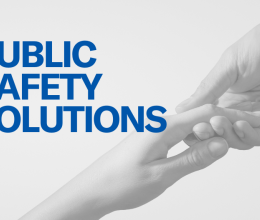
Good public policy requires good information. Without data, our criminal legal system cannot address persistent racial disparities and other negative outcomes. That’s why ensuring comprehensive data collection has long been a top priority for the ACLU of Vermont.
Culminating years of advocacy by the ACLU and our allies, bill H.546 was signed into law in May 2022, creating the Division of Racial Justice Statistics. The division will facilitate the collection, analysis, and public distribution of comprehensive data from across Vermont’s criminal legal system.
This marks a significant step in addressing data gaps that mask racial and geographic disparities, preventing informed policymaking and ultimately hurting Vermonters – particularly communities of color.
What is the Division of Racial Justice Statistics?
This newly created entity will collect and analyze data relating to racial disparities, to inform policy decisions that work toward the amelioration of said disparities across various systems of State government. It will use data to drive policies aimed at eradicating racial inequities in all points of our criminal legal system, from policing to sentencing and our prison system.
The division will be overseen by the Office of Racial Equity and consist of three data analysists who will report to the legislature annually with policy recommendations. There will also be an advisory council of seven members who will be required to have lived experience with a wide range of circumstances that can inform how the division approaches its work.
What does this development mean for advancing racial justice throughout state government?
Time and again, data reveals the disparate treatment of Vermonters based on their race. Black drivers are twice as likely to be pulled over than white drivers. Black defendants are fourteen times more likely to be charged with a felony drug crime than white defendants. And Black people are approximately seven times more likely to be incarcerated than other Vermonters.
A lack of available data is often used to argue that problems do not exist, and that we should not change the status quo. But when we have the data, it is hard for decision-makers to ignore the disparities made evident, and for those who care about racial justice, it creates an obligation to address them.
Improved data collection and analysis have already been the backbone of successful reform initiatives such as the “Justice Reinvestment” process, known as JRI, which reduced Vermont’s prison population by more than 40%.
JRI utilizes data analysis and stakeholder engagement to identify problems and achieve better outcomes. The process revealed glaring racial disparities in state drug prosecutions. It also showed that Vermont has had one of the most punitive community supervision systems in the country, with revocations from parole and furlough driving nearly eighty percent of new prison admissions. By reforming that system, revocations from furlough have been cut dramatically, from 1,404 in 2018 to just 268 in 2021.
With the new system of data collection and analysis in the Division of Racial Justice Statistics, we expect to attain further gains in addressing systemic racism in our legal system and enable more smart justice reforms going forward.
What’s next?
Collecting and analyzing data is a critical step, but only the first of many. Once we have the information, we must then institute changes to address and eliminate the disparities across our systems.
As the office of racial equity begins staffing the Division of Racial Justice Statistics, the ACLU of Vermont will draft recommendations for the types of data collection and analysis that should be prioritized.
These recommendations are likely to include greater transparency around police use of force, data about the use of prosecutorial discretion in charging decisions and pela bargains, and information around decisions that result in people’s return to prison for technical violations of probation parole and furlough.
With clear and reliable data, we will have one more avenue to help us in our work to make our state more fair, just, and equitable for everyone who calls it home. Follow our work for updates about the Division of Racial Justice Statistics and related initiatives.



